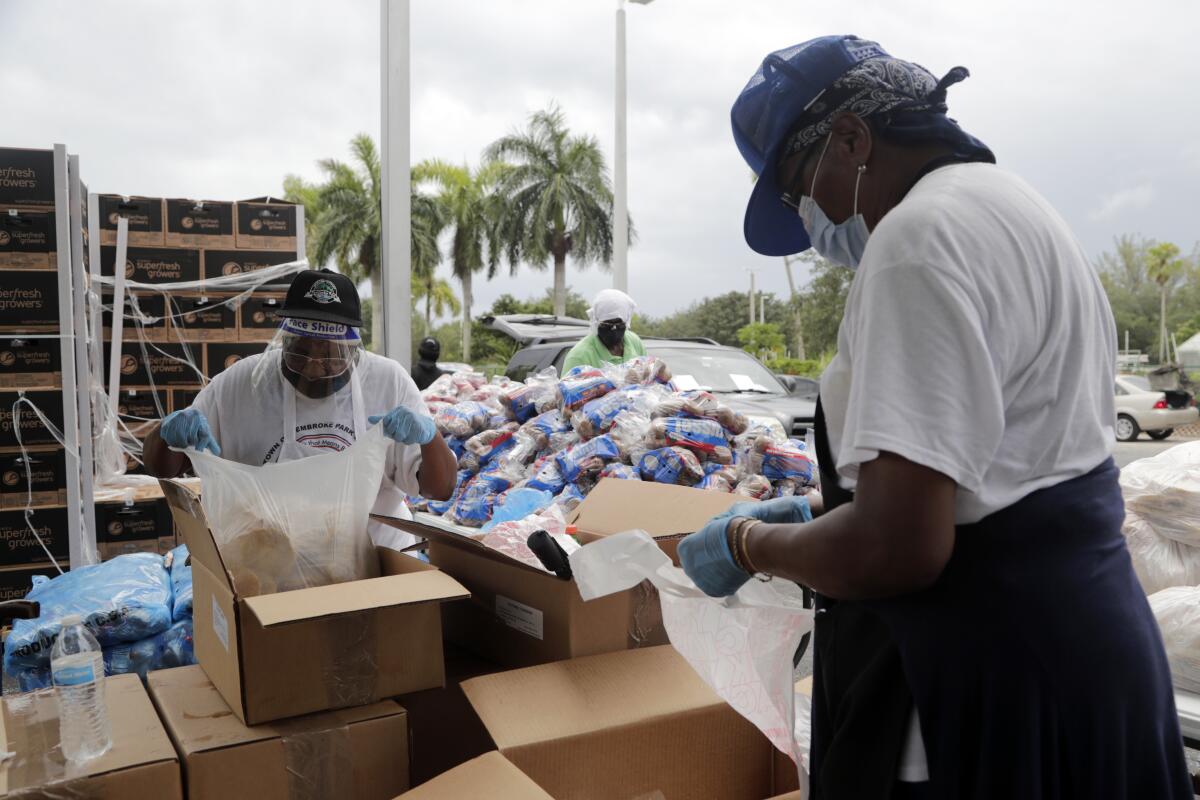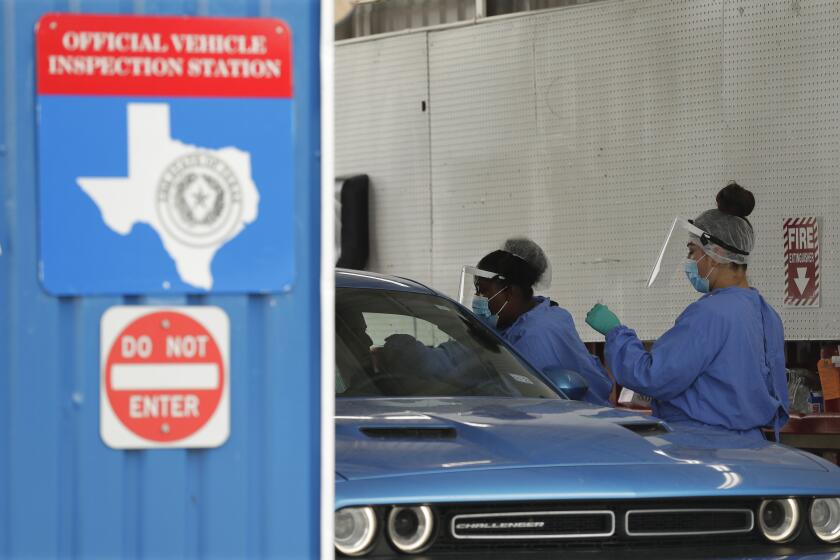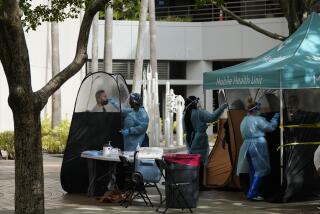Florida has largest single-day increase in COVID-19 cases of any state so far

ST. PETERSBURG, Fla. — As the United States grapples with the worst coronavirus outbreak in the world, Florida shattered the national record for a state’s largest single-day increase in positive cases Sunday.
Deaths from the virus have also been rising in the U.S., especially in the South and West, though they are still well below the heights hit in April, according to a recent Associated Press analysis of data from Johns Hopkins University.
“I really do think we could control this, and it’s the human element that is so critical,” said University of Florida epidemiologist Cindy Prins. “It should be an effort of our country. We should be pulling together when we’re in a crisis, and we’re definitely not doing it.”
In hard-hit Houston, two top Democratic officials called for the nation’s fourth-largest city to lock back down as hospitals strained to accommodate the onslaught of sick patients.
In Florida, where parts of Walt Disney World reopened Saturday, 15,299 more people tested positive, for a total of 269,811 cases, and 45 more deaths brought the total to 4,242, according to state Department of Health statistics reported Sunday.
The number of deaths per day from the coronavirus in the U.S. had been falling for months, and even remained down as some states saw explosions in cases
The numbers come at the end of a record-breaking week as Florida reported 514 fatalities — an average of 73 a day. Three weeks ago, the state was averaging 30 deaths a day.
Republican Gov. Ron DeSantis said that, even with the rising rates, he still wanted Florida schools to reopen as scheduled next month, saying children have not proven to be vectors for the disease in states and countries where campuses are open. He said that although each county will have to come up with procedures, depending on its local infection rate, not opening the schools would exacerbate the achievement gap between high- and low-performing students.
“We know there are huge, huge costs for not providing the availability of in-person schooling,” he said. “The risk of corona, fortunately, for students is incredibly low.”
The World Health Organization, meanwhile, reported another record increase in the number of confirmed coronavirus cases over a 24-hour period, at more than 230,000.
The U.N. health agency said the United States again topped the list with more than 66,000 new cases. The figures don’t necessarily account for delays in reporting cases and are believed to far underestimate actual totals.
Countries in Eastern Europe were among those facing rising waves of new infections, leading to riots in Serbia, mandatory face masks in Croatia and travel bans or quarantines imposed by Hungary.
“We see worrisome signs about an increase in the number of cases in the neighboring countries, Europe and the whole world,” said Gergely Gulyas, chief of staff to Hungarian Prime Minister Viktor Orban. “Now, we have to protect our own security and prevent the virus from being brought in from abroad.”
Serbia, where health authorities are warning that hospitals are almost full because of the latest surge, reported 287 new infections Sunday, although there have been increasing doubts about the accuracy of the figures. Officially, the country has over 18,000 confirmed infections and 382 deaths since March. Sunday’s report of 11 coronavirus deaths was the country’s second-highest daily death toll.
In Bulgaria, authorities reintroduced restrictions lifted a few weeks ago because of a new surge in cases.
Albania also has seen a significant increase in infections since mid-May, when it eased lockdown measures. The Balkan nation reported 93 new cases, over twice as many as the highest daily figures in March and April, and the health ministry called the situation at the main infectious-disease hospital “grave.”
Croatia, whose island-dotted Adriatic Sea coast is a major tourist destination, is making wearing masks mandatory in stores beginning Monday.
Yet the numbers of infections in Eastern Europe pale in comparison to daily coronavirus reports from India, South Africa and Brazil, whose virus-denying president has tested positive.
India, which has the most cases after the United States and Brazil, saw a record surge of 28,637 cases reported in the last 24 hours Sunday. Authorities also announced a weeklong lockdown beginning Tuesday in the key southern technology hub of Bangalore, home to the offices of top tech companies such as Microsoft, Apple and Amazon.
South Africa has reported over 10,000 new daily cases for several days in a row, including 13,497 new infections announced Saturday night. Johannesburg’s densely populated Soweto township is one of the virus hot spots. With more than 264,000 cases and 3,971 deaths, South Africa accounts for over 40% of all reported coronavirus cases in Africa.
South African President Cyril Ramaphosa said Sunday the country would return to a ban of alcohol sales to reduce the volume of trauma patients so that hospitals have more beds to treat COVID-19. The country is also reinstating a nighttime curfew to reduce traffic accidents and has made it mandatory for all residents to wear masks in public.
Meanwhile, in Taiwan, which has kept its coronavirus outbreak to a few hundred cases, an annual film festival wrapped up with an awards ceremony this weekend where actors and others lined up for photo shoots with no social distancing, and participants didn’t wear masks.
More to Read
Sign up for Essential California
The most important California stories and recommendations in your inbox every morning.
You may occasionally receive promotional content from the Los Angeles Times.











